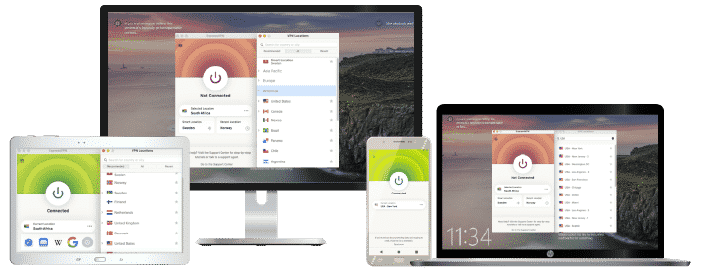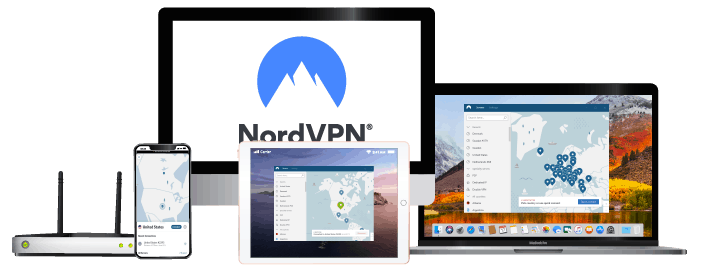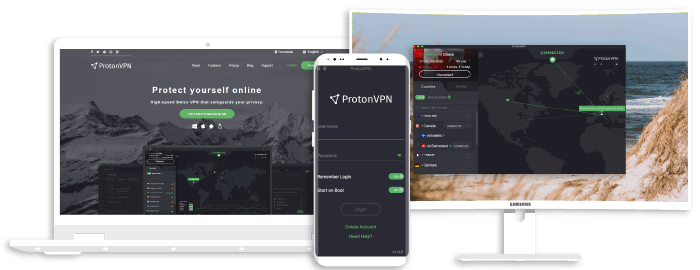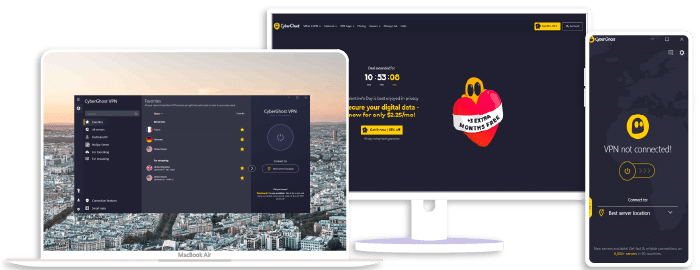How to Use Two VPN Connections at the Same Time
I have always been a strong advocate for online privacy, and using a VPN (Virtual Private Network) is one of the most effective ways to safeguard your data. You might even be wondering, ‘Can you use two VPN connections simultaneously?’ The answer is a confident YES! In this article, we’ll explore in detail how you can use two VPN connections at once to enhance your online security and access region-specific content.
At first glance, using two VPN connections might seem like overkill, but there are several legitimate reasons to do so. Many users ask, ‘Can you use two VPN connections to boost your online protection?’ In reality, employing a dual VPN setup not only offers an extra layer of encryption but also allows you to access geo-restricted content from multiple regions at once—ideal for streaming services like Netflix.
Let’s dive into the nitty-gritty of how to use two VPN connections effectively. In this guide, we’ll walk through the process step by step using popular providers such as ExpressVPN, NordVPN, and Surfshark. These services not only offer robust security but also serve as excellent examples of how you can set up dual VPN connections for enhanced privacy.
Overall Best in Our Tests for Using Two VPN Connections
ExpressVPN
Overall score: 9.8
- 3,200 servers across 105 countries
- Works with streaming platforms
- AES 256-bit encryption
- Supports private protocol, Lightway
- Money-back guarantee
30-day money-back guarantee
NordVPN
Overall score: 9.6
- 8,700+ servers available in 129 countries
- Connect up to 10 devices simultaneously
- Great security features
- Verified no-logs policy
- Unblocks streaming platforms
30-day money-back guarantee
Surfshark
Overall score: 9.5
- 4,500+ servers in 100+ countries
- Allows unlimited simultaneous connections
- Integrates stealth mode
- Multihop feature available
- Webcam protection from unauthorized apps
30-day money-back guarantee
Proton VPN
Overall score: 9.4
- 17,250+ servers in 125 countries
- Free version available
- Strong security features
- Reliable no-logs policy
- Allows Perfect Forward Secrecy
30-Day Money-Back Guarantee
CyberGhost
Overall score: 9
- 9,300+ reliable servers in 100 countries
- 45-day money-back guarantee
- Strict no-log policy
- Tough security features
45-Day Money-Back Guarantee
Understanding the Basics of VPN Connections: How to Use Two VPN Connections
Before diving into how to use two VPN connections simultaneously, let’s take a step back and understand the basics. A Virtual Private Network (VPN) is essentially a secure tunnel between your device and the internet. It masks your online actions by encrypting your data and making it difficult for anyone to view what you’re doing or gain access to your personal information.
There are numerous VPN providers available today, each offering different features and levels of security. Some of the most popular ones include ExpressVPN, NordVPN, and SurfShark. These services work by routing your internet connection through their servers, making it seem as though you’re browsing from a different location.
Here are some reasons why I might want to use a VPN:
- Privacy: With a VPN, my online activities can’t be tracked by my Internet Service Provider (ISP) or any third parties.
- Security: A VPN provides an extra layer of security when using public Wi-Fi networks.
- Accessing Geo-Blocked Content: If I’m traveling abroad, I can still access content that’s only available in my home country by using a VPN service.
Now that we’ve covered these basics, here’s where things get interesting: multiple simultaneous VPN connections. There might be instances where one wants to connect to more than one server at the same time – perhaps for an added level of privacy or simply because they need to access content from two different regions simultaneously.
In the following sections, we’ll delve into how exactly you can set up multiple concurrent connections with ExpressVPN, NordVPN, and SurfShark – stay tuned!
Steps to Establish Two VPN Connections Simultaneously
Are you curious about whether you can use two VPN connections simultaneously? Let me guide you through the process. Setting up two VPN connections isn’t as complex as it might seem, and this approach can significantly boost your online privacy by layering encryption methods for enhanced security.
First, let’s examine why you might choose to use two VPN connections concurrently. A dual setup not only bolsters your anonymity by applying two layers of encryption but also provides a fail-safe—if one connection drops, the other continues to secure your data. This strategy answers the common question, ‘Can you use two VPN connections without compromising your security?’ with a resounding yes.
To get started, here are a few steps:
- Choose Your Primary VPN
Start by selecting a reliable primary VPN provider that offers robust security features. Consider top-tier providers like ExpressVPN or NordVPN, known for their speed and strong encryption protocols.
- Install Your Primary VPN
Download and install the primary VPN on your device following the provider’s instructions.
- Set Up Your Secondary VPN
Next up is setting up a secondary VPN which could be another application-based service such as Surfshark or even a browser-based option.
- Activate Both VPNS Simultaneously
Start by connecting to the internet with your primary VPN activated, then activate your secondary service – remember this should be done in order of priority!
- Verify each Connection
For peace of mind, go ahead and verify both connections independently using an IP checking tool – just ensure that they show different locations!
Remember that while this method adds an extra layer of protection, it may slow down your internet speed due to double-encryption overheads.
| Key Factors | ExpressVPN | NordVPN | SurfShark |
|---|---|---|---|
| Speed | High | High | Moderate |
| Encryption Level | AES 256-bit | AES 256-bit | AES 256-bit |
| Ease-of-use | User-friendly interface | Simple navigation controls | Clear UI |
Note: The above table provides a comparative overview between ExpressVPN, NordVPN, and Surfshark.
Although some may ask, ‘Can you use two VPN connections without affecting performance?’ the answer is an enthusiastic yes. Using two VPN connections is all about balancing enhanced security with system performance. By choosing a primary service like ExpressVPN and complementing it with a secondary connection from NordVPN or Surfshark, you create a robust, layered defense against cyber threats while ensuring a stable connection.
Technical Considerations for Using Two VPN Connections
When setting up dual VPN connections, the first step is to assess your device’s technical capabilities. Not every operating system or router supports running multiple VPN clients simultaneously. You need to ensure that your hardware can handle the extra load and that your network settings allow for two separate encrypted tunnels without causing conflicts. This technical evaluation is crucial before you attempt to use two VPN connections in your daily routine.
In addition, understanding the compatibility between different VPN applications is key. Some VPN providers may interfere with one another if their protocols clash. For instance, when you try to use two VPN connections on a single device, it’s important to configure them on separate layers—one might run on your system level while the other operates at the browser level. This setup minimizes the risk of connection conflicts and ensures that both VPN connections work in harmony.
Another factor to consider is the encryption protocol each VPN uses. Not all protocols are created equal, and combining them requires a clear understanding of how they interact. Whether you choose OpenVPN, IKEv2, or another protocol, verify that both VPN connections are compatible. This technical diligence is vital for users who want to use two VPN connections without encountering unexpected issues.
Finally, keep in mind that network performance may be affected when you run two VPN connections simultaneously. The added encryption layers can introduce latency or slow down your overall internet speed. It is advisable to run tests and monitor your network performance to ensure that the dual VPN setup meets your security needs without compromising usability. By carefully considering these technical aspects, you can confidently set up a secure dual VPN configuration.
Benefits and Drawbacks of Using Two VPN Connections
Pros of Using Two VPNs:
- Enhanced Security: Double encryption significantly reduces the risk of data interception.
- Improved Access to Geo-Blocked Content: Dual VPNs can route your traffic through different regions, allowing access to content restricted by geographic location.
- Increased Privacy: Using two VPN connections creates a robust, layered defense that bolsters your online anonymity.
- Greater Flexibility: The setup enables you to manage multiple connection endpoints simultaneously, which is ideal for users needing access to different regions at once.
Cons of Using Two VPNs:
- Reduced Internet Speed: The double encryption process can slow down your connection due to increased latency.
- Complex Configuration: Setting up and managing two VPN connections can be challenging, particularly for less tech-savvy users.
- Higher Resource Usage: Running multiple VPN clients at the same time may consume more system resources, potentially affecting overall performance.
Using two VPN connections can offer substantial benefits that many users may not realize. One of the primary advantages is the added layer of security; by encrypting your data twice, you significantly reduce the risk of data interception. This method is especially appealing for those handling sensitive information or operating in high-risk environments. It’s clear that if you’re wondering, “Can you use two VPN connections to maximize your privacy?” the answer is a strong yes.
On the benefits side, a dual VPN configuration allows you to bypass geo-restrictions more effectively. With one VPN connection routing your traffic through one country and the other through a different location, you can access region-specific content that might otherwise be unavailable. This dual approach gives you greater flexibility in managing your digital footprint while still protecting your identity online.
However, there are drawbacks to consider as well. The most common issue is a potential decrease in internet speed. Running two layers of encryption means your data must pass through two separate servers, which can introduce delays or higher latency. Additionally, the complexity of managing two VPN connections can lead to configuration challenges, particularly for less tech-savvy users. Therefore, while the security benefits are enticing, it’s important to weigh them against the possible performance trade-offs.
In summary, using two VPN connections provides enhanced security and increased access to geo-blocked content, but it also comes with challenges such as slower speeds and greater configuration complexity. Evaluating these pros and cons will help you decide if a dual VPN setup is right for your specific online needs. Ultimately, if you choose to use two VPN connections, you can enjoy the benefits of layered security while being mindful of potential limitations.
Troubleshooting and Best Practices for Dual VPN Connections
Even after successfully setting up two VPN connections, you may encounter issues that require troubleshooting. One common challenge is determining whether both VPNs are active and functioning as intended. When you ask, “Can you use two VPN connections and still maintain a stable connection?” it’s important to verify each connection independently using IP lookup tools. This step helps you confirm that your traffic is being routed correctly through both VPN servers.
Another troubleshooting tip is to monitor your device’s resource usage. Running two VPN clients simultaneously can consume additional CPU and memory, potentially leading to performance slowdowns or conflicts between the applications. Keeping an eye on system performance allows you to adjust your settings as needed. If you notice any significant lag or connectivity issues, consider disabling one VPN temporarily to diagnose the problem.
Best practices also include keeping your VPN software up to date. Regular updates not only provide improved security features but also enhance compatibility when running dual VPN setups. Ensure that both VPN clients are configured correctly and that there are no overlapping settings that could cause interference. By adhering to these practices, you can minimize potential disruptions and maintain a smooth dual VPN experience.
Finally, document your configuration settings and any troubleshooting steps you’ve taken. This record can be invaluable if you encounter recurring issues or need to adjust your setup in the future. Whether you’re an advanced user or just starting to explore how to use two VPN connections, following these best practices will help you achieve a stable, secure, and efficient dual VPN configuration.
Conclusion: Maximizing Your Online Security with Dual VPNs
After exploring the ins and outs of using two VPNs simultaneously, I’ve come to appreciate the significant boost it can provide to online security. It’s clear that by layering your connections via two different VPN servers – like ExpressVPN and NordVPN – you’re creating an extra line of defense against potential cyber threats.
While some may argue this method could lead to slower internet speeds, the enhanced privacy and security make it a worthwhile trade-off. Especially for those who frequently connect to public Wi-Fi or handle sensitive data, doubling up on VPNs can be a game-changer.
There are several reliable options available for dual VPN use. ExpressVPN stands out with its impressive server network and top-notch encryption technology. Meanwhile, NordVPN offers advanced security features like Double VPN technology, which routes your traffic through two servers for an added layer of protection.
Another great option is Surfshark, which provides multi-hop connections, allowing you to connect via two different servers in separate countries. This brings us closer to achieving maximum online anonymity – something that’s becoming increasingly important in our digital age.
Here’s a quick rundown of the best VPNs:
- ExpressVPN: Known for its large server network and strong encryption
- NordVPN: Offers Double VPN technology for double encryption
- Surfshark: Provides multi-hop connections for enhanced anonymity
It’s crucial not just to choose premium services but also understand how they function together. Remember that each additional layer of security adds complexity – so take time to familiarize yourself with both your chosen services before diving into dual usage fully.
Ultimately, though, utilizing dual VPNs isn’t about paranoia—it’s about taking control of your online safety in an increasingly interconnected world. So whether you’re conducting business remotely or simply browsing the web at your favorite coffee shop, remember that using tools like ExpressVPN or NordVPN (or better yet—both!) can help ensure you stay safe and secure in cyberspace.
FAQs: Can You Use Two VPN Connections Effectively?
Yes, you can use two VPN connections on one device by configuring one at the system level and the other through an application or browser extension. This dual setup can enhance your security by providing two layers of encryption. However, be sure to check the compatibility of your VPN services and ensure that your device can handle the extra load.
Using two VPN connections can significantly boost your online privacy and security. The added layer of encryption makes it much harder for potential attackers to intercept your data. Additionally, it allows you to bypass geo-restrictions more efficiently by routing your traffic through servers in different regions. This approach is particularly useful for users who frequently access content from various parts of the world.
While there are clear security benefits to using two VPN connections, there are potential drawbacks such as reduced internet speed due to the double encryption process and increased complexity in configuration. It is important to balance your security needs with performance expectations and adjust your settings as necessary to maintain a stable connection.
Join the TechRobot Newsletter
Actionable tips on online security, the best VPNs, unblocking guides, and special offers — straight to your inbox.
Related Posts
- Cookie Theft: The Silent Cyber Threat You Need to Know About
- Data Breaches: How It Happens and What To Do
- Everything You Need to Know About Mailfence: A Secure Email Solution
- Chinese Hackers Allegedly Take Advantage of a Microsoft Exchange Flaw To Steal Call Records
- 10 Tips to Delete Yourself from the Internet
- What Is IP Spoofing & How Do You Prevent It?
- How to Get a Denmark IP Address from Anywhere (in 2026)
- How to get a Korean IP address from Anywhere (Updated 2026)
- How to Get a Netherlands IP Address from Anywhere (in 2026)
- Which Governments Are Requesting Your Data The Most?









